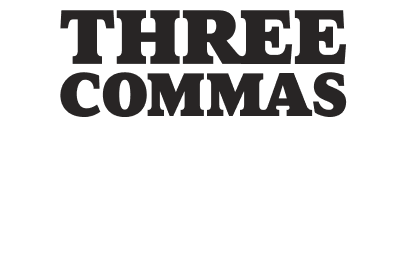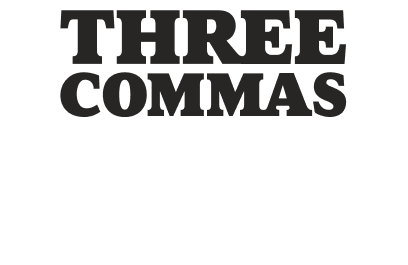How do you learn? Most likely, the first thing that comes to mind is memorization: digesting facts and figures and spitting them out when asked of you, whether you’re ready or not. Not cool. In the digital age -- with information slapping us silly -- how we learn is increasingly more important than what we learn.
Of course, Millennials are showing the culture that experience carries more weight than anything else. This is correct. Experience also applies to the learning process; yep, learning is not really about being smart -- it’s about learning how to learn. It’s a skill we can all master, and from there, proceed to kick ass in business and in life.
Ulrich Boser, a senior fellow at the Center for American Progress, has thoroughly researched the process of learning as we need to wrap our mind around it today. It’s a science, but it’s fun science.
 His book, Learn Better: Mastering The Skills For Success in Life, Business, and School, or How To Become An Expert in Just About Anything, shows us how thinking about thinking can be the first step toward acquiring new skills that will amaze us and enrich our lives. Keep calm and carry on: the book doesn’t feel like homework. No pop quizzes.
His book, Learn Better: Mastering The Skills For Success in Life, Business, and School, or How To Become An Expert in Just About Anything, shows us how thinking about thinking can be the first step toward acquiring new skills that will amaze us and enrich our lives. Keep calm and carry on: the book doesn’t feel like homework. No pop quizzes.
Most of us have a post-traumatic stress disorder about learning during our school days, and are reluctant to take on the task ever again. The idea of it feels exhausting. However, if you’re in business, you need to be learning all the time, from new skills to industry trends and sales techniques.
Here, we ask Ulrich to get our brains right.
RON: Has the digital age and information overload changed the way we learn?
ULRICH: The digital age really does change what we need to learn. Facts are just so easily available. We can get up to speed on anything we want. We can get all the facts quite quickly. What that means is that we have to learn more effectively. We have to learn -- in ways that we understand -- how we are given material to solve new problems.
Our brains haven’t necessarily changed all that much, but what we need to do now is leverage how our brain works to learn, so that we can succeed in the digital age. Sometimes that might mean turning off our computers, and sometimes that might mean turning on our computers.
Our brain gets very easily overloaded, and we can learn in much more effective ways if we take advantage of it.
RON: Is there one right way to learn, or does it differ according to the type of person you are?
ULRICH: There is a lot of “common sense” about learning that’s wrong. Some people believe in learning styles; some people are auditory learners and some are visual learners. Sometimes quizzing gets a bad rap, but it turns out to be a great way to acquire information to really understand.
RON: As people get older, is it harder to learn? Or easier?
ULRICH: Some aspects of learning do shift with age. Our brains are remarkably flexible.
One example would be learning a foreign language. We actually get better at learning as we get older. We simply have more knowledge, and we’re simply more self-regulated as opposed to a seven-year-old bouncing around the room.
[An older person] can say, ‘I’m going to learn this; I’m going to set some goals for myself, and I’m going to have confidence about setbacks.’ It’s very frustrating for a much younger person to have that sense of purpose.
RON: What role does short-term memory play in learning? How does time and place affect learning?
ULRICH: What researchers have shown now is that short-term memory is where a lot of learning takes place. Of course, when you’re learning, it’s important to be in a place that’s quiet, where you can reflect. You also want to make learning something that is just a little bit difficult for yourself, a little bit harder.
Research is very clear that if you mix it up and learn in “blocks,” it’s more effective. For example, if you are learning the piano, and you use one block to practice Mozart and another block to practice Gershwin, it’s more effective. It’s a way in which you are making learning a little more difficult for yourself, but you are also getting more nuance within that space.
You also have to keep revisiting information to account for that inevitable forgetting.
RON: What role does emotion play in learning? It’s easy to get frustrated when the task is hard to grasp or the subject matter is not sinking in.
ULRICH: We often see learning as purely academic, but we need to feel calm in order to learn. If you feel frustrated or you feel that you can’t do it, you’re not going to learn.
If you are not interested in learning something, you’re not going to learn it. It’s common sense, but we assume that people are motivated to learn something all the time. There are ways for us to create relevance and find meaning so that we can learn better.
Rereading your notes can be comforting, but it’s also kind of a passive way to learn.
RON: You mention analogies as a very effective way for learning.
ULRICH: Analogies are something that are incredibly undervalued in our society. They’re great for creativity and fresh thinking. Most people think of them academically -- dog is to kennel as cat is to… -- but they’re more powerful ways of understanding and learning.
We use them often in entrepreneurial settings, without really thinking about them. One example is the use of Uber: “the Uber of pre-K.”
Analogies involve creativity: thinking of new ideas and how you communicate them to others. For example, the “three-strikes” law in California uses the baseball analogy.
Analogies are used as a tool for innovative business thinking. It’s thinking about things in terms of systems. But we have to know the source analogy well for the analogy to work, and for our comfort level.
“It cuts like butter” is a useful analogy. It’s a little bit of art and a little bit of science, but it’s all-powerful. It allows us to understand things in new ways.
RON: What are some rules of thumb to keep in mind before tackling a learning task?
ULRICH: Having clear goals and an understanding that you are going to get better. For me, something I have not gotten better at is driving. I’ve been doing it for years, so you would think I would get better at it, but I don’t pay much attention to it.
Also, get a tutor. You need someone to help you out, to give you advice. Often, if you don’t have insight [from someone else] you may not come to the conclusion on your own. You can learn better and faster with someone else’s support and advice.
Click here to find out more about Ulrich’s book, Learn Better.
Find out more about Ulrich Boser here.


